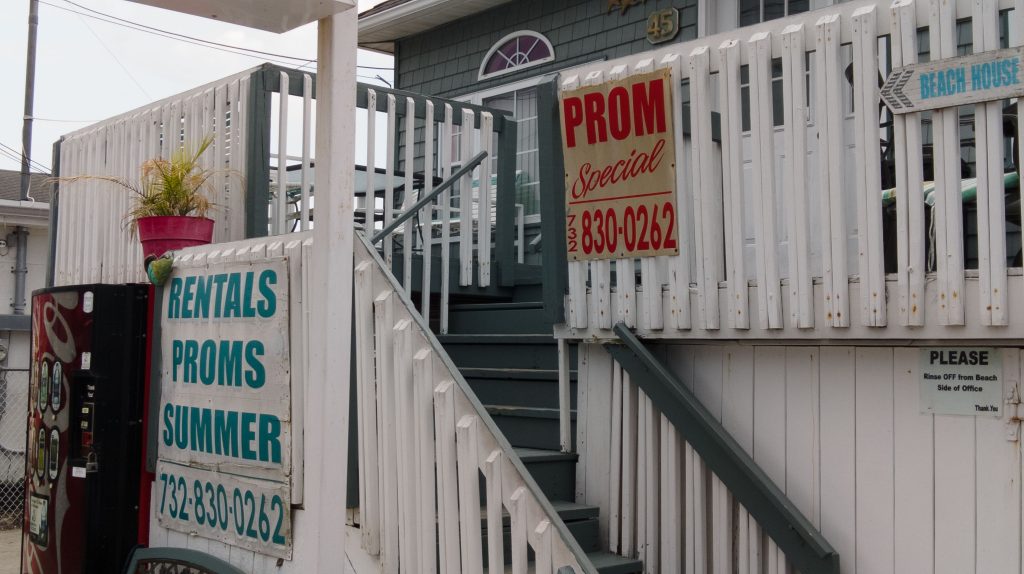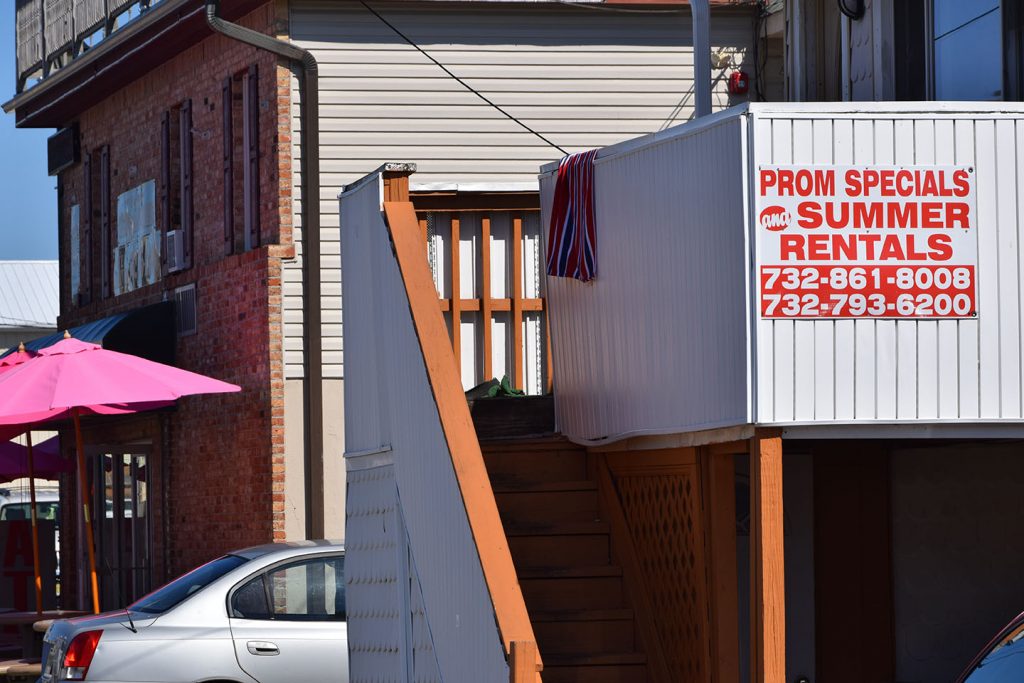Seaside Heights both introduced and adopted ordinances Wednesday that limit the age of tenants to which properties in town can be rented during a period of time each year that is marked by underage drinking, vandalism and fighting in the streets. A local attorney, however, promised to sue the borough on behalf of clients he said wished to remain unidentified.
This year, the arrival of “prom season” saw the borough descend into debauchery, prompting the town – which has successfully drawn in more families and peaceful renters the rest of the summer – to modify its ordinances to crack down on the annual onslaught of post-prom rentals that almost always result in an overburdened police department, injuries and negative press.
The borough voted on a slew of quality-of-life ordinances Wednesday, primarily those that established a formal youth curfew in town and closes beaches at 8 p.m. (see separate story), and others that regulate the use of rental properties. New Jersey’s laws set forth a fairly simple system for municipalities to pass ordinances: they are introduced by a vote of the governing body at a council meeting, then are subject to a public comment period at a future meeting, when a second vote to formally adopt the ordinance is taken. This week – without any objections from residents – the council adopted a package of ordinances that regulate residential rentals and introduced a similar package that does the same for motels.
The ordinances, which would take affect next year, limit rentals to those 21 year old or greater between April 1 and June 30, when post-prom and graduation parties have grown out of control and officials said parents shrug responsibility for the trouble their teens cause once they arrive. After June 30, the age limit for rental properties reverts back to 18-years-old until the following spring. Last month, the council unanimously introduced ordinances that placed the age limit on the owners of private homes that are licensed as rental properties. That ordinance was adopted unanimously Wednesday.
Under the new ordinance, property owners must apply to the borough for a license, undergo a home inspection and sign a document agreeing to comply with the regulations, said Borough Administrator Christopher Vaz. The ordinance also requires property owners to register with the town the names of the tenants who will be occupying properties and their ages when a rental turns over.
At the same meeting Wednesday, the council introduced a package of new ordinances that would place the same limit on hotels and motels, as previously promised by officials. Those ordinances, likewise, will be subject to a public hearing and second vote before formal adoption would occur next month.
No members of the public commented during the public hearing on the ordinances that were adopted, however after the business of the meeting concluded and the floor was opened to general public comment, a local attorney pledged a group of anonymous clients would sue the borough if the restrictions were not repealed.
“I represent a group of concerned citizens who request not to be identified at this time,” Christopher R. Shea, an attorney with Toms River-based R.C. Shea and Associates, owned by his father, told borough council members. “They asked me to ask the board to voluntarily rescind the ordinance.”
Shea went on to reference New Jersey’s Law Against Discrimination, a hint at how he might approach future litigation over the ordinance.
“There is a Law Against Discrimination within the state of New Jersey that prevents people from the age of 18, 19 and 20 – adults in the United States – from being discriminated against,” Shea said. “In this modern age, you can go fight for a war for the United States, but the borough of Seaside Heights is saying you can’t rent a short-term rental within its borough.”
Shea stated plainly: “Either you voluntarily rescind the ordinance or a lawsuit will be filed.”
Officials did not comment on the potential litigation. Mayor Anthony Vaz thanked Shea for his comments before closing the public comment portion of the meeting.
If Shea, or any other attorney, were to file a complaint, their client or clients would not be able to remain anonymous, even if their properties were owned by a corporation or LLC. He did not divulge at the meeting whether his clients were residential homeowners or the owners of motels. In 2018, the borough had considered restricting rental properties to those 21 or older, but settled on an 18-year-old limit after a similar threat of a lawsuit.

Altercations posted to social media during the 2023 Memorial Day weekend in Seaside Heights, N.J. (Source: Instagram/TikTok)
No other council member offered a response, though some said the collective group of measures they were taking were aimed at improving safety and order in town, part of a larger campaign to evolve the borough into a family-oriented beach resort from the hard-partying antics portrayed on television shows such as “Jersey Shore.”
“I think everything we tried to do here tonight, and we’ve said this from the beginning, is trying to make this into a family town,” said Councilman Richard Tompkins. “I think that this is what it’s all about – trying to make things better in this town, and these ordinances will allow us to do that.”
Shorebeat regularly monitors litigation involving local governments, and will follow up if a complaint is filed.

Advertisement

Ortley Beach & North Beaches
Landmark Ortley Beach Breakfast Spot Looks to Expand

Ortley Beach & North Beaches
‘Temporary’ 70-Foot Cell Tower on Route 35 in Ocean Beach OK’d to Return

Seaside Heights & Seaside Park
Beloved South Seaside Park Restaurant Will Remain Open As Developer Seeks to Demolish Block

Seaside Heights & Seaside Park
In Seaside Heights, A $50M Flagship Building Rises Over the Boulevard in a Famed Location

Police, Fire & Courts
Ocean County Sheriff Establishes Drone Command Center in Seaside Heights Amid New Video







